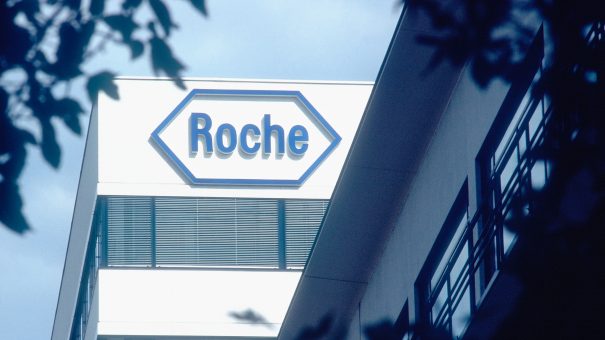Roche announced new 2-year data from Part 2 of FIREFISH, a Phase 2/3 global study evaluating Evrysdi (risdiplam) in infants aged 1-7 months at enrollment with symptomatic Type 1 spinal muscular atrophy (SMA). The data showed Evrysdi continued to improve motor function between months 12 and 24, including the ability to sit without support. The study also showed Evrysdi continued to improve survival, improve the ability to feed orally and reduce the need for permanent ventilation*. Exploratory data suggested Evrysdi continued to improve the ability to swallow and reduce hospitalisations compared to the natural course of Type 1 SMA. Safety for Evrysdi was consistent with its established safety profile. These longer-term data build upon one-year pivotal findings from FIREFISH Part 2 and will be presented at the 73rd American Academy of Neurology (AAN) Annual Meeting being held virtually April 17-22, 2021.
“The natural course of Type 1 SMA shows us that, sadly, without treatment children are never able to sit without support and typically don’t survive beyond the age of two,” said FIREFISH investigator Dr Basil Darras, Professor of Neurology at Harvard Medical School and Director of the Spinal Muscular Atrophy Program at Boston Children's Hospital. “It is encouraging to see that infants continued to improve after 12 months of treatment, with twice as many of those who received Evrysdi for two years able to sit without support for at least five seconds. Infants treated with Evrysdi also experienced a range of improvements in motor function abilities, a reduction in serious events typically caused by disease progressions, such as the need for permanent ventilation or hospitalisation, and increased rate of survival.”
The primary endpoint of the study was the percentage of infants able to sit without support for at least five seconds at month 12. At 12 months, infants treated with Evrysdi demonstrated improved ability to sit without support for at least five and 30 seconds. Twenty-four-month data showed continued improvements from month 12, with 61% (25/41) vs. 29% (12/41) able to sit without support for at least five seconds and 44% (18/41) vs. 17% (7/41) able to sit without support for at least 30 seconds, as assessed by the Gross Motor Scale of the Bayley Scales of Infant and Toddler Development Third Edition (BSID-III). Importantly, infants treated with Evrysdi maintained the ability to feed orally (92%; 35/38) at month 24. Further, exploratory data suggest similar maintenance inability to swallow (95%; 36/38). In the natural course of the disease, infants with Type 1 SMA older than 12 months generally require feeding support.
Ninety-three per cent of infants (38/41) were alive after 24 months of treatment. Eighty-three per cent of patients (34/41) were alive and free from permanent ventilation after 24 months, an improvement compared to the natural course of the disease. There were no new deaths between months 12 and 24. Without treatment, the median age of death or permanent ventilation is 13.5 months. In addition, fewer hospitalisations were observed during the second year of treatment with Evrysdi compared with the natural course of the disease, with 34% of infants (14/41) not requiring hospitalisation during 24 months of treatment. Additional findings suggested that Evrysdi continued to improve measures of the Hammersmith Infant Neurological Examination 2 (HINE-2) at month 24 vs. month 12, including being able to hold their head upright (63% vs. 44%), roll from supine to prone (44% vs. 10%), stand with support (15% vs. 5%) and walk (4% vs. 2%). Continued improvements were also observed in the CHOP-INTEND total score, with a larger percentage of patients achieving a score of at least 40 by month 24 (76%; 31/41) than month 12 (56%; 23/41). In the natural course of the disease, children with Type 1 SMA rarely reach a CHOP-INTEND total score of 40 points.
“These data highlight the real-world impact of this transformative medicine in babies with the most severe form of SMA. For example, all infants alive after 24 months of treatment were able to swallow which can help them to feed orally rather than through a tube,” said Levi Garraway, M.D., Ph. D., Chief Medical Officer and Head of Global Product Development. “These results increase our understanding of how this first-of-its-kind treatment can extend the lives of babies with Type 1 SMA, providing much-needed hope for their families.”
The adverse events and serious adverse events observed were consistent with previous studies. The most common adverse events were upper respiratory tract infection (54%), pneumonia (46%), pyrexia (44%), constipation (29%), nasopharyngitis (17%), bronchitis (15%), diarrhea (15%) and rhinitis (12%). The incidence of serious pneumonia declined by approximately 3-fold between the first and second 12-month periods of FIREFISH Part 2. The most common serious adverse events were pneumonia (39%) and respiratory distress (7%). There were no drug-related adverse events leading to withdrawal or treatment discontinuation.
Roche leads the clinical development of Evrysdi as part of a collaboration with the SMA Foundation and PTC Therapeutics. More than 3,000 patients are now treated with Evrysdi in the clinical trial, compassionate use and real-world settings.

 Roche leads the clinical development of Evrysdi as part of a collaboration with the SMA Foundation and PTC Therapeutics
Roche leads the clinical development of Evrysdi as part of a collaboration with the SMA Foundation and PTC Therapeutics
















.jpeg)











.jpg)




